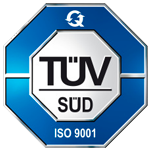5 Best Automotive Power Cable Solutions for Enhanced Vehicle Performance
In the ever-evolving automotive industry, the importance of reliable and efficient electrical systems cannot be overstated. According to a report by MarketsandMarkets, the global automotive electrical system market is projected to reach $105.9 billion by 2027, highlighting the increasing demand for advanced technologies and components that enhance vehicle performance. One crucial component of these electrical systems is the Automotive Power Cable, which plays a significant role in the transmission of power between various automotive systems, such as the battery, alternator, and electronic control units. As vehicles become more electrified and dependent on a myriad of advanced systems, the choice of power cables can greatly affect overall performance, efficiency, and safety. In this guide, we will explore the five best automotive power cable solutions that can help optimize your vehicle's performance, ensuring reliability and longevity in an increasingly competitive automotive landscape.
Top Considerations When Choosing Automotive Power Cables for Performance
When selecting automotive power cables, several key factors must be considered to enhance overall vehicle performance. First and foremost, the conductor material plays a significant role; copper cables are preferred over aluminum for their superior conductivity and durability. According to a report by the Society of Automotive Engineers (SAE), high-quality copper cables can improve power transmission efficiency by up to 20%, allowing for better performance under high-load conditions.
Additionally, the cable gauge should not be overlooked. A larger gauge wire reduces resistance, which is critical for performance-driven applications. For instance, a study published by the International Council on Clean Transportation found that using a 4-gauge cable instead of a 10-gauge cable can cut voltage drop significantly, enhancing responsiveness and reducing energy loss by nearly 5%. Furthermore, attention must be paid to the insulation material, as high-temperature and abrasion-resistant insulations can prevent failures and ensure longevity, particularly in the demanding environments of automotive applications.
Ultimately, understanding the importance of conductor material, gauge, and insulation will empower automotive enthusiasts to make informed choices that not only boost performance but also contribute to the reliability and safety of their vehicles.
Understanding the Different Types of Automotive Power Cables
Automotive power cables play a crucial role in ensuring that a vehicle's electrical systems function efficiently. Understanding the different types of power cables available is essential for anyone looking to enhance their vehicle's performance. Generally, power cables can be categorized into primary cables and auxiliary cables. Primary cables, often made of high-quality copper or aluminum, are designed to carry the main electrical load from the battery to various components like the starter, alternator, and engine. The size and gauge of these cables are critical; thicker cables can handle higher currents, reducing the risk of overheating and power loss.
Auxiliary cables, on the other hand, are utilized for supporting secondary functions such as lighting, audio systems, and other electronics within the vehicle. These cables vary in thickness and insulation material, depending on their application. For example, a power inverter may require a heavier gauge cable to manage the load efficiently, while smaller gauge wires can be sufficient for lighter applications like powering interior lights. By choosing the right type of automotive power cable, vehicle owners can ensure optimal performance and longevity of their vehicle's electrical system.
Key Features of High-Quality Power Cables for Vehicles
High-quality power cables play a crucial role in enhancing vehicle performance, particularly in the evolving electric vehicle (EV) market. As global automotive power cable markets are expected to grow significantly, understanding the key features of these cables is essential for manufacturers and consumers alike. Durable insulation materials, excellent conductivity, and temperature resilience are paramount to ensure optimal power transfer and safety. Innovations, such as thermoplastic polyurethane, are gaining traction due to their high strength, flexibility, and resistance to wear, making them ideal for automotive applications.
Moreover, advancements in cable technology, like the development of specialized silicone rubber for high-voltage applications, are critical in meeting the demands of modern EVs. These materials not only enhance performance but also support the growing need for efficient charging infrastructure as countries navigate towards greener energy solutions. As the automotive industry increasingly prioritizes electrification, investing in high-quality power cables is essential for maximizing vehicle efficiency and longevity.
5 Best Automotive Power Cable Solutions for Enhanced Vehicle Performance
| Feature | High-Quality Power Cables | Benefits |
|---|---|---|
| Gauge Size | AWG 4 - 8 | Minimize voltage drop, support high current. |
| Material | Oxygen-Free Copper (OFC) | Enhanced conductivity and durability. |
| Insulation | Cross-Linked Polyethylene (XLPE) | High thermal resistance, protects against heat and abrasion. |
| Length | Various lengths available (3ft to 25ft) | Flexible installation options for various applications. |
| Temperature Rating | -40°C to 105°C | Safe operation in extreme temperatures. |
Installing Power Cables: Step-by-Step Guide for Optimal Results
When installing power cables in your vehicle, it is crucial to follow a step-by-step guide to ensure optimal performance and safety. According to the Specialty Equipment Market Association (SEMA), improper installation of automotive wiring can lead to significant electrical failures, impacting vehicle performance. Start by selecting the right gauge wires, as undersized cables can result in increased resistance, heat buildup, and potential fire hazards. Use a multimeter to measure your vehicle’s voltage and determine the appropriate size wire; typically, 10 AWG to 4 AWG gauge cables are recommended for high-performance automotive systems.
Next, ensure all connections are clean and secure. The National Fire Protection Association (NFPA) reports that nearly one in three vehicle fires are electrical-related, underscoring the importance of meticulous installation practices. Utilize high-quality connectors, and consider soldering wires to ensure a robust connection. Route cables away from heat sources and moving parts, and cover sharp edges with loom or electrical tape to prevent damage over time. By adhering to these best practices, you can enhance vehicle performance while minimizing the risk of electrical failures, ultimately ensuring a safer driving experience.
Maintaining Your Vehicle's Power Cable System for Longevity and Efficiency
Maintaining your vehicle's power cable system is crucial for ensuring its longevity and efficiency, particularly for electric vehicles (EVs) where battery performance is paramount. Regular inspections of power cables can prevent wear and tear, which may lead to significant energy losses. According to industry reports, degraded power cables can reduce the overall efficiency of an EV battery by up to 15%, drastically affecting performance and driving range. Check for any signs of fraying, corrosion, or loose connections, as these issues can compromise the power delivery to your vehicle's systems.
Additionally, one of the key strategies to prolong your EV battery's lifespan involves temperature management. Studies indicate that operating temperatures outside the recommended range can shorten battery life by over 20%. By ensuring optimal thermal conditions for battery cables and connectors—whether through proper insulation or the installation of cooling systems—you can maximize efficiency. Manufacturers also emphasize the importance of using high-quality power cables designed specifically for EV applications to enhance durability and performance, safeguarding your investment in the long run.
NORTH EASTON MACHINE • 218 Elm Street • North Easton, MA 02356 • 508-238-6219

